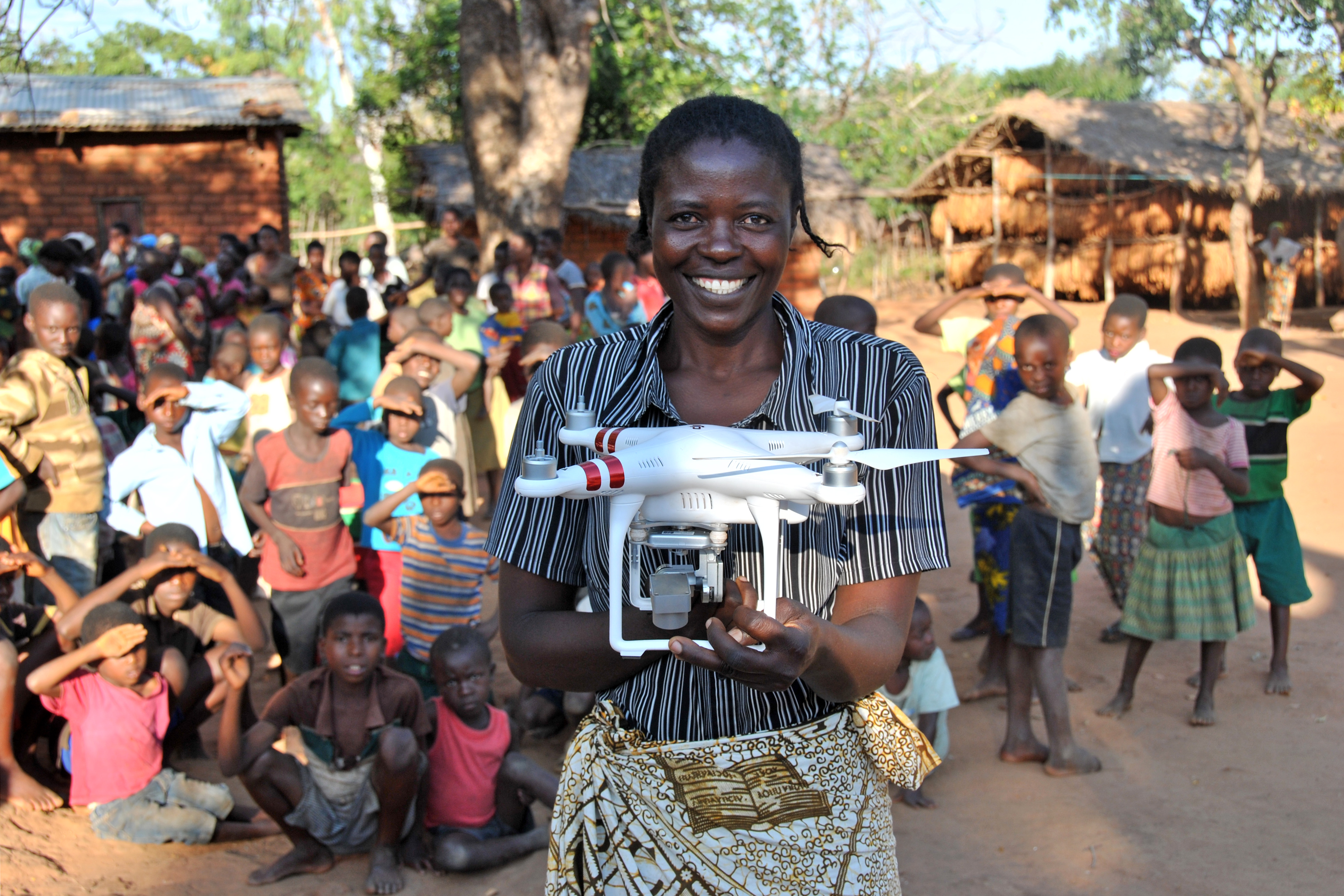
Drones
Humanitarian drone testing corridor
While drones are already being used for a variety of services in industrialized countries, their significant potential to enhance humanitarian response and development goals has only recently become evident and also, regulatory frameworks have yet to catch up with this rapidly evolving technical innovation. To address these gaps, the Government of Malawi and UNICEF established the world’s first humanitarian and development focused drone testing corridor. It is designed to provide a controlled platform for the private sector, universities, and other partners to explore how drones services can be used in scenarios that will benefit marginalized communities. In Malawi this is particularly important due to frequent flooding in some areas and sustained challenges in maintaining transport infrastructure.
During the first 2 years, the corridor received applications from 23 drone manufacturers, operators, telecom companies, and universities around the world. Fourteen organizations participated in the testing space during the first 2 years of operation, and tested drones for training, mapping/imagery, transportation and unmanned traffic management applications in a fully integrated airspace. Testing companies were also invited to share some of their expertise and increase the capacity amongst Malawian technologists and entrepreneurial students in this emerging area and trained 180 young technologists and university students. The corridor also fostered UNICEF’s collaboration with non-traditional partners from an emerging industry, and provided an opportunity to explore the potential of drones as in the area of development cooperation and humanitarian response. The newly built ecosystem includes real-time data-gathering, intelligence-generation through machine learning, automated logistics management, drone regulation, market-shaping partnerships, and out-of-the-box capacity building.
In order to further strengthen a vibrant drone ecosystem in Malawi, UNICEF establishes the African Drone and Data Academy as of October 2019. The Academy which will train Malawian and other students from the region in how to build and pilot their own “do it yourself” low-cost drones or in how to operate and maintain the best mapping drones the industry currently has to offer. The second emphasis will be put on data analytics: the students will learn how to analyze drone-acquired data for geospatial purposes and allow them to use their skills for mapping, flood modelling, agricultural purposes and many other use cases. In the first two years, the Academy will be offering intensive 11-week course for a total of some 150 students. As of September 2021, a two years Master’s degree will be offered and the Academy will provide the first in-depth training of this kind specifically tailored for a development and humanitarian context on a global scale. By answering the specific need for highly-skilled local capacity, the Academy is expected to substantially contribute to the creation of new jobs for the young entrepreneurial generation and stimulate the local job market.